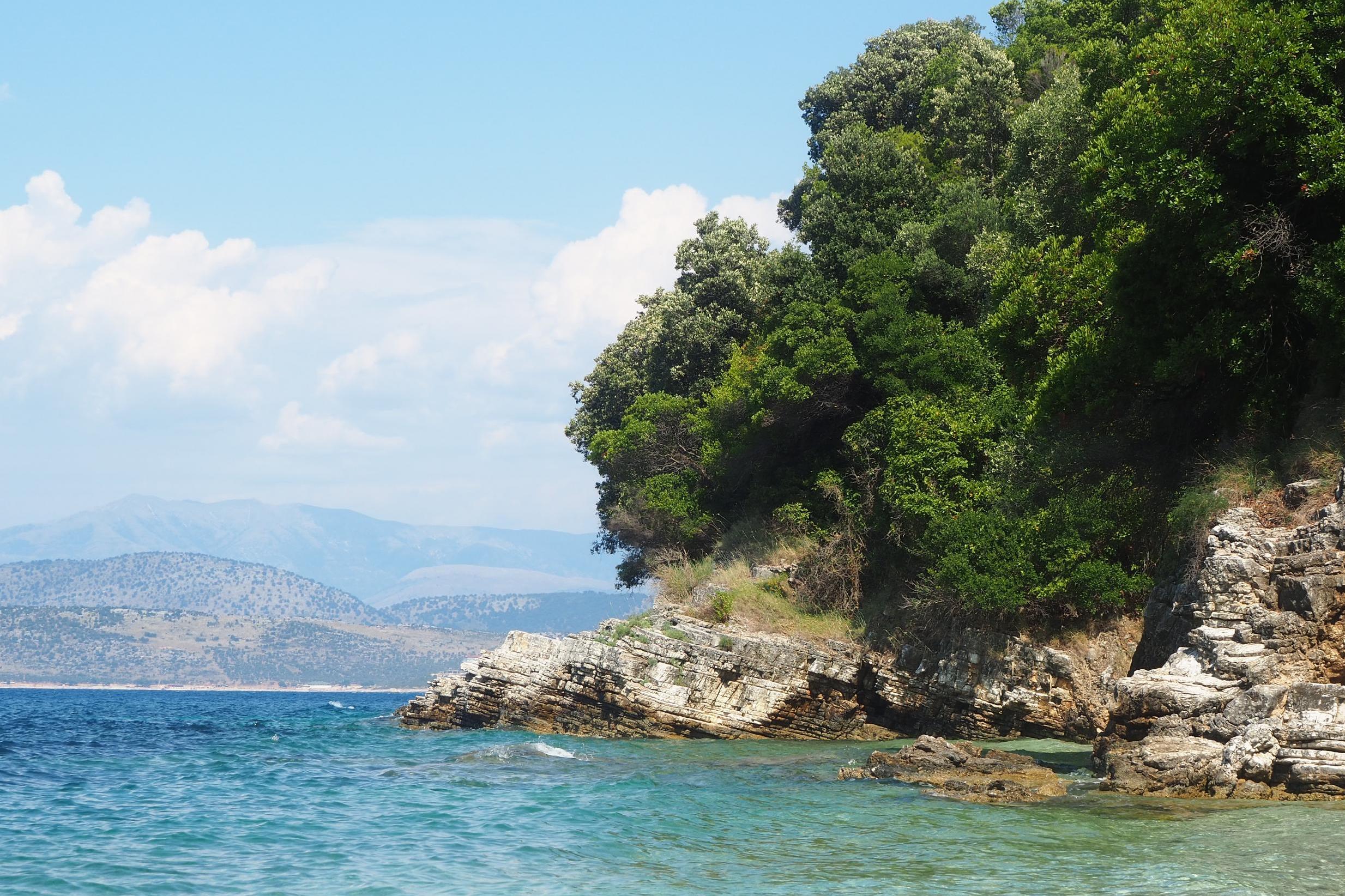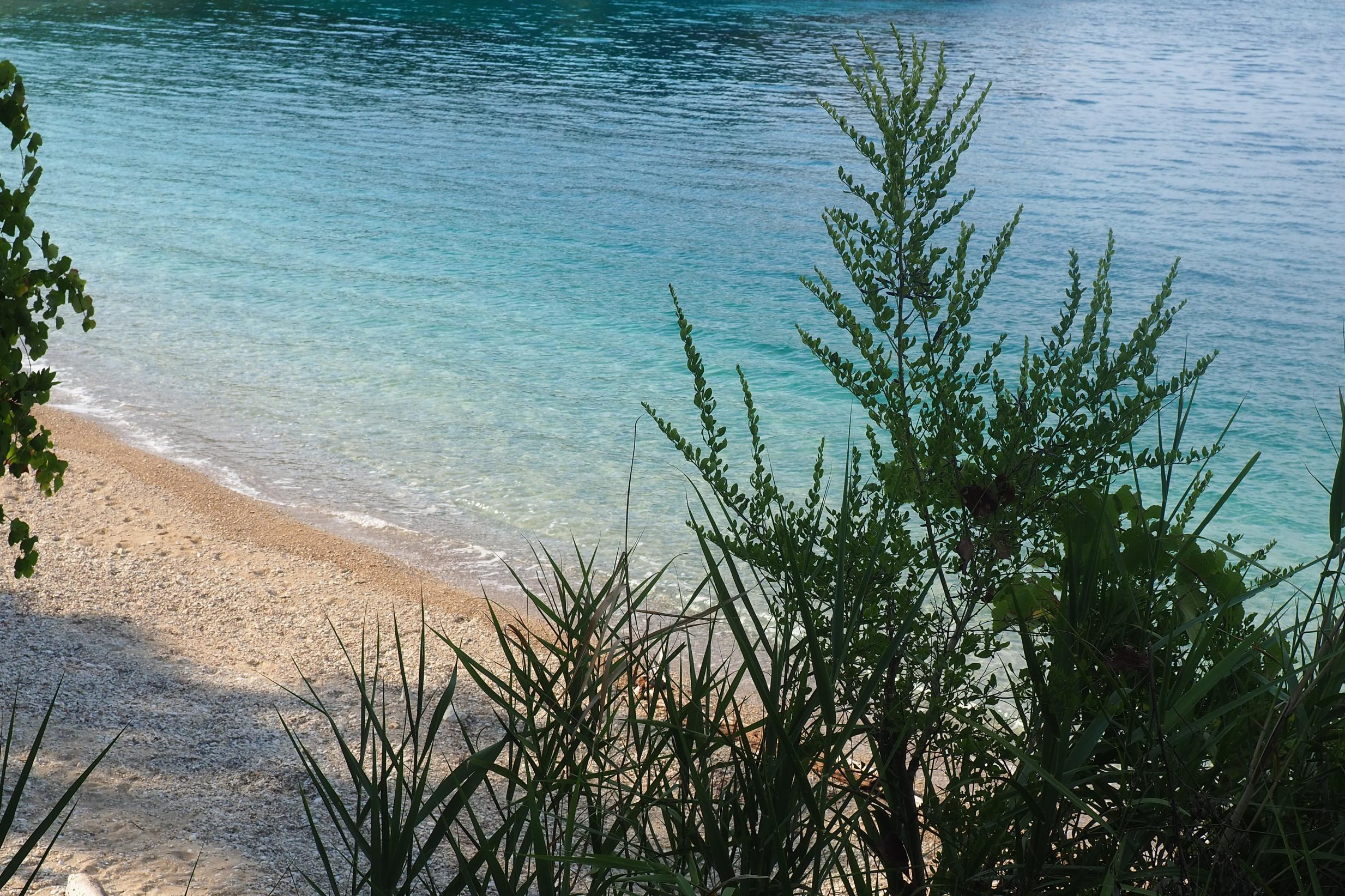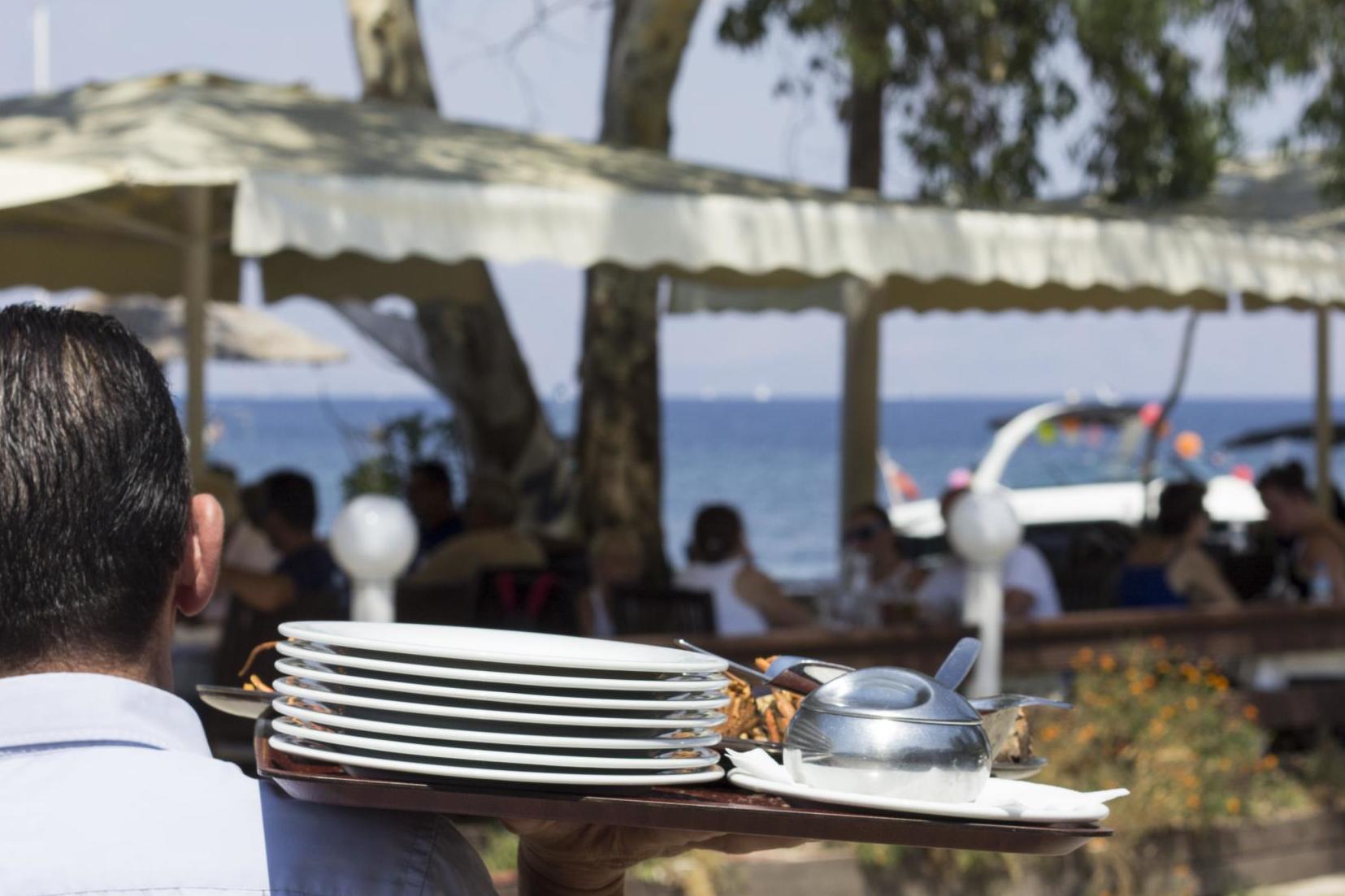Why the quieter side of Corfu is the perfect place for a socially distanced holiday
Away from the tourist-heavy hotspots, this popular Greek island is a haven of tranquillity, says Corfu native Anastasia Miari

Corfu, like most southern European holiday destinations, is not having a normal summer. Beach bars and holiday strips usually spewing sunburnt, boozing tourists have failed to open. The Venetian old town, normally crammed with cruise ship day-trippers, has been repatriated to cold coffee-sipping locals. Beaches and bays boasting the best water are free to swim in, without the threat of an incoming yacht. And while holiday villages on the coast remain eerily quiet in the absence of our seasonal visitors, the island has become the ideal place to practice social distancing.
Raised in Corfu to a British mother and a Greek father in Kavos’s heyday, I have rarely had the opportunity to experience the island like I have this summer. Emerging from lockdown in May but still wary, I took to the mountains, exploring hiking trails I never knew existed and beaches that always seemed too much of a pain to get to, seeking out isolation in the vast expanse of green that this particular Greek island is known for. In the absence of my favourite beach bars, I have been forced to see the island beyond its coastal developments, retreating inland to discover a Corfu few tourists ever experience.
Beyond sandy beaches and toothy cliff edges, I found a wild, verdant landscape in the most southern part of the island as I walked the first part of the Corfu Trail, a 220km walking route that runs the entire length of the island. Beginning in Kavos, a place I usually avoid for its lairy 18-30s crowd, the strip soon gave way to olive groves, the lake of Tsilaria (one many locals haven’t even heard of) and dense forest, leading to an abandoned 17th-century monastery surrounded by a quilt of wild flowers and the odd rare orchid. Just past this lies Arkoudilas beach, lined with Jurassic-feeling vegetation, where I spent days wild camping and swimming solo. Even in busy summer months, this beach is something of a secret spot reserved for in-the-know locals in search of respite from the tourist hordes. It also happens to be one of the wildest, most unspoiled spots on the island.
Another of these is Erimitis (meaning ‘hermit’). Hailed as the last truly biodiverse place on Corfu and completely untouched, even by the conquering Venetians who were prolific in their olive cultivation on the island, Erimitis has been my social distancing safe haven.
An hour north of the old town by car via the coastal road that wraps around the east side of the island, it’s worth the 40-minute hike through dense forest and swathes of high-strung spider webs. Emerging onto Akoli beach for the first time this summer, I practically ran into the turquoise waters, stripping off even my bikini en route as I tripped over large white pebbles, exhilarated by the sheer, untamed beauty of the place.
Wizened trees run right the way up to the water’s edge and bow into the sea. Thanks to its hard-to-reach location, I’ve had Akoli all to myself this year, although it’s currently under threat of development and locals have launched a petition against the planned ‘holiday village’ that’s set to be built here.

In the absence of my favourite beach bar, at which I’d usually tuck into Greek salad on the beach, I’ve found myself cycling to a new lunch spot. Through the charming Perivoli village in the south, down past bobbing fishing boats at Kalivioti beach and on to Notos, where the proprietor, Mr Savvas, serves up seafood meze, ouzo and sweeping views over the Ionian and the Greek mainland. The garlic-spiked tzatziki and crispy calamari have been the best companions on my most solitary days here.
The south of Corfu has long been seriously underrated and snubbed by British tourists in favour of the wealthier north eastern coast – or ‘Kensington-on-Sea’ as it’s been nicknamed. Because of this though, businesses like Taverna Savvas, or Spiros Karidis Taverna – another gem in the South – have remained authentically Greek (down to their liberal free carafes of Retsina). They’ve retained the ancient Greek concept of ‘Filoxenia’ – showing kindness and generosity to strangers. And not only is the food much cheaper, it’s also good.
My bike rides have taken me all along the south east coast, through the fishing villages of Petriti and Boukari and onto the olive groves of Agia Pelagia, where a grand old manor house has been restored to its former glory. Now Aphrodite Corfu Villas, the white washed house that can accommodate 16 guests sits neatly at the water’s edge with its own jetty. Those who stay here and self-cater this summer will have no reason to leave. All the better, in the year of Covid-19.

The same can be said for the San Stefano Estate, a 300-year-old Venetian house tucked into the hills above Benitses, which combines the grandeur of the island’s golden period with modern touches like an infinity pool that overlooks the inky blue Ionian.
In all of my solitary roamings and ramblings this summer, however, I’ve found good company in the buzzing insects, excitable swallows and inquisitive foxes on Mount Pantokrator, at the abandoned village of Old Perithia. Corfu’s oldest settlements, dating back to the 13th-century, might only have three permanent residents year round, but this summer I’ve very much enjoyed meeting its wildlife. The animals don’t speak a word of English, but maybe that’s for the best.
Join our commenting forum
Join thought-provoking conversations, follow other Independent readers and see their replies
Comments